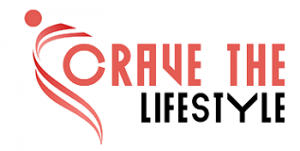The importance of chronic care management cannot be overstated when discussing the prevention of hospital readmissions. Effective management of chronic conditions can significantly reduce the need for patients to return to the hospital, easing the burden on healthcare systems and improving patient outcomes. This involves a comprehensive approach that includes patient education, regular monitoring, and timely medical interventions.
Role of Patient Education
Educating patients about their conditions is a cornerstone of chronic care management. By informing patients about their disease, how to manage symptoms, and the importance of adherence to treatment plans, healthcare providers can empower patients to take charge of their health. For instance, a diabetes patient who understands the role of diet and exercise in managing blood sugar levels is less likely to experience complications that could lead to hospitalization.
Regular Monitoring and Follow-ups
Regular follow-up appointments and continuous monitoring are vital in chronic care management. These appointments allow healthcare providers to track the patient’s progress, make necessary adjustments to their treatment plans, and address any concerns promptly. Remote monitoring tools and telehealth services have revolutionized this aspect of care, enabling real-time data collection and timely feedback.
Timely Medical Interventions
Early identification and treatment of complications are crucial in preventing hospital readmissions. Chronic care management often involves proactive healthcare measures, such as adjusting medications or recommending lifestyle changes before a minor issue becomes a major problem. Timely interventions can significantly improve the quality of life for patients with chronic illnesses and reduce the likelihood of emergency hospital visits.
Collaborative Care Teams
Employing a collaborative care team approach can enhance the effectiveness of chronic care management. Multidisciplinary teams consisting of physicians, nurses, dietitians, and social workers can provide comprehensive and coordinated care. This team-based model ensures that all aspects of a patient’s health are addressed, leading to better health outcomes and reduced hospital readmissions.
Leveraging Technology
Technology plays a critical role in contemporary chronic care management. Electronic Health Records (EHRs), remote monitoring devices, and telemedicine platforms facilitate seamless communication between patients and healthcare providers. These technologies enable continuous monitoring and quick adjustments to care plans, helping to prevent conditions from worsening and requiring hospital readmission.
Impact of Lifestyle Modifications
Lifestyle modifications are integral to managing chronic diseases effectively. Patients who adopt healthier lifestyles, such as improved diet, regular physical activity, and quitting smoking, often experience better health outcomes. Healthcare providers can offer tailored advice and support to help patients make these beneficial changes, thus reducing the risk of hospital readmission.
Financial Benefits and Improved Quality of Life
Implementing effective chronic care management strategies can also lead to financial benefits for healthcare systems by reducing the costly cycle of hospital admissions and readmissions. Patients, on the other hand, benefit from an enhanced quality of life, with fewer disruptions caused by frequent hospital stays. For more information on how chronic care management can improve your bottom line, you may also check out this blog.
Conclusion
Chronic care management is an essential strategy for preventing hospital readmissions. By focusing on patient education, regular monitoring, timely medical interventions, collaborative care, technology, and lifestyle modifications, healthcare providers can significantly reduce the occurrence of preventable hospital visits. This not only benefits healthcare systems financially but also leads to improved health outcomes and a better quality of life for patients.
Frequently Asked Questions
What is chronic care management?
Chronic care management involves the ongoing care and support of patients with chronic conditions. It focuses on long-term management to prevent complications and hospital readmissions.
How does patient education help in chronic care management?
Patient education empowers patients with the knowledge to manage their health effectively, reducing the likelihood of complications and hospital readmissions.
What role does technology play in chronic care management?
Technology, such as EHRs and remote monitoring devices, enhances chronic care management by enabling seamless communication and continuous monitoring of patients.


 Using SQL for Bayesian Inference: Building Probabilistic Models with Data
Using SQL for Bayesian Inference: Building Probabilistic Models with Data  Why do people love the surprises in online slot games?
Why do people love the surprises in online slot games?  Can shockwave for ED help men with high cholesterol?
Can shockwave for ED help men with high cholesterol?  Feeding Sheep Through the Seasons: Changing diets for summer and winter
Feeding Sheep Through the Seasons: Changing diets for summer and winter  Role of CBD Vape Pens in Natural Pain Relief?
Role of CBD Vape Pens in Natural Pain Relief?  Simple Steps to Prevent Burnout Before It Takes a Toll
Simple Steps to Prevent Burnout Before It Takes a Toll  Why Low-Acid Organic Coffee is the Perfect Choice for Sensitive Stomachs?
Why Low-Acid Organic Coffee is the Perfect Choice for Sensitive Stomachs?  Which Ayurvedic Medicine is the Best Tablet for Piles?
Which Ayurvedic Medicine is the Best Tablet for Piles?  Discover the Latest Hits on Zee5: Must-Watch Movies and Series
Discover the Latest Hits on Zee5: Must-Watch Movies and Series 